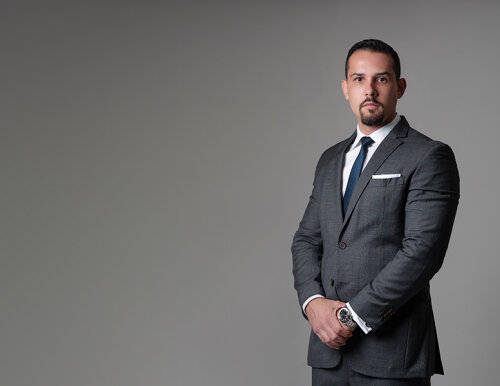Best Probate Lawyers in Brazil
Share your needs with us, get contacted by law firms.
Free. Takes 2 min.
Or refine your search by selecting a city:
List of the best lawyers in Brazil
About Probate Law in Brazil
Probate in Brazil refers to the legal process of settling the estates of deceased individuals. This involves the distribution of the deceased's assets, payment of debts and taxes, and the execution of the will, if one exists. The process ensures that the decedent's wishes are honored, and the assets are distributed fairly among beneficiaries. Probate law in Brazil is governed by the Brazilian Civil Code and other relevant legal frameworks that outline the procedures and responsibilities involved in the probate process.
Why You May Need a Lawyer
Engaging a lawyer in probate matters can be crucial due to the complexity and nuanced nature of the laws involved. Common situations where legal help may be needed include:
- Disputes among beneficiaries or heirs over asset distribution.
- Challenges to the validity or execution of a will.
- Complex estate structures inclusive of businesses or international assets.
- Tax implications and compliance with legal requirements.
- Absence of a will, which can complicate intestate succession.
- Lengthy probate procedures requiring thorough documentation and legal representation.
Local Laws Overview
In Brazil, the probate process is regulated primarily by the Brazilian Civil Code. Important legal aspects include:
- The necessity of initiating probate proceedings in a court of law, typically in the jurisdiction where the deceased was domiciled.
- The appointment of an executor or administrator to manage the estate’s affairs during the probate process.
- Mandatory distribution rules that protect the rights of heirs, specifically spouse and children.
- Public notice requirements to allow creditors an opportunity to claim against the estate.
- The requirement of a notarial inventory process for certain estates, which can be more expedited than judicial processes in some instances.
Frequently Asked Questions
1. What is the role of an executor in Brazil?
An executor, appointed by the will or by the court, is responsible for inventorying the estate, paying debts and taxes, and distributing assets according to the will or intestate laws.
2. How long does the probate process take in Brazil?
The duration varies based on the complexity of the estate, the existence of disputes among parties, and the efficiency of the local judicial system, usually taking anywhere from a few months to several years.
3. What happens if a person dies without a will?
If there is no will, the estate is distributed according to Brazil's intestate succession laws, which prioritize surviving spouses, children, and other family members.
4. Can a will be contested?
Yes, wills can be contested on grounds such as lack of testamentary capacity, undue influence, or fraud.
5. Are there taxes applicable to inheritance in Brazil?
Yes, inheritance tax (Imposto sobre Transmissão Causa Mortis e Doação - ITCMD) is applied at varying rates, depending on the state.
6. Is notarization of a will required in Brazil?
Yes, wills in Brazil must be formalized in writing and can be public, done privately with witnesses, or holographic, each with specific requirements.
7. Can foreign assets be included in a Brazilian will?
Yes, they can be included, but it is advisable to consult a lawyer regarding international assets, as different laws may apply.
8. What is a notarial inventory?
A notarial inventory is a less complex, expedited probate process conducted by a notary, applicable for estates with no disputes and where all parties agree.
9. How can I find out if I am named in a will?
You should be notified by the executor if you are a beneficiary. Additionally, you may inquire at the probate court where proceedings are initiated.
10. Are life insurance benefits part of the probate process?
Typically, life insurance benefits are not considered part of the probate assets if a beneficiary is directly named, as they transfer outside the estate.
Additional Resources
For more information about probate and assistance, consider the following resources:
- The Brazilian Bar Association (OAB) for legal support and lawyer referrals.
- State Revenue Departments for information on inheritance tax regulations.
- Local notary offices for guidance on notarial inventories.
- Legal aid services for individuals unable to afford private legal counsel.
Next Steps
If you require legal assistance for probate matters in Brazil, consider the following steps:
- Consult with a specialized probate attorney for personalized advice and representation.
- Collect and organize pertinent documents, including any wills, deeds, and financial records.
- Attend necessary court hearings and follow procedural requirements as advised by your lawyer.
- Engage with dispute resolution mechanisms, if conflicts arise, to seek amicable settlements outside of court.
Taking informed and proactive steps will help manage the complexities of probate law and ensure your rights and interests are effectively safeguarded.
Lawzana helps you find the best lawyers and law firms in Brazil through a curated and pre-screened list of qualified legal professionals. Our platform offers rankings and detailed profiles of attorneys and law firms, allowing you to compare based on practice areas, including Probate, experience, and client feedback.
Each profile includes a description of the firm's areas of practice, client reviews, team members and partners, year of establishment, spoken languages, office locations, contact information, social media presence, and any published articles or resources. Most firms on our platform speak English and are experienced in both local and international legal matters.
Get a quote from top-rated law firms in Brazil — quickly, securely, and without unnecessary hassle.
Disclaimer:
The information provided on this page is for general informational purposes only and does not constitute legal advice. While we strive to ensure the accuracy and relevance of the content, legal information may change over time, and interpretations of the law can vary. You should always consult with a qualified legal professional for advice specific to your situation.
We disclaim all liability for actions taken or not taken based on the content of this page. If you believe any information is incorrect or outdated, please contact us, and we will review and update it where appropriate.
Browse probate law firms by city in Brazil
Refine your search by selecting a city.

















